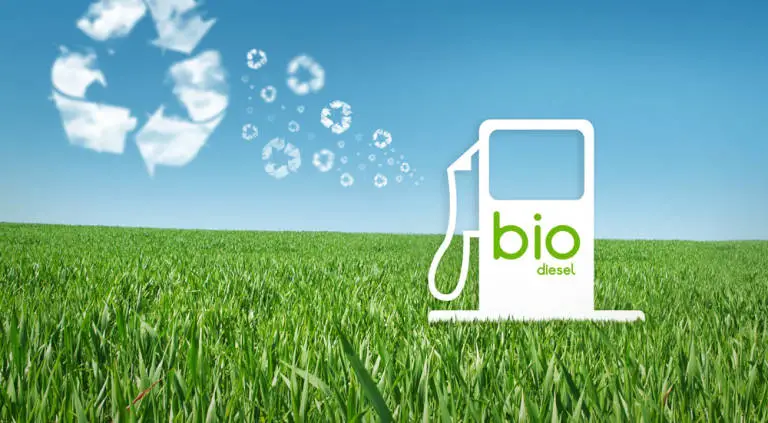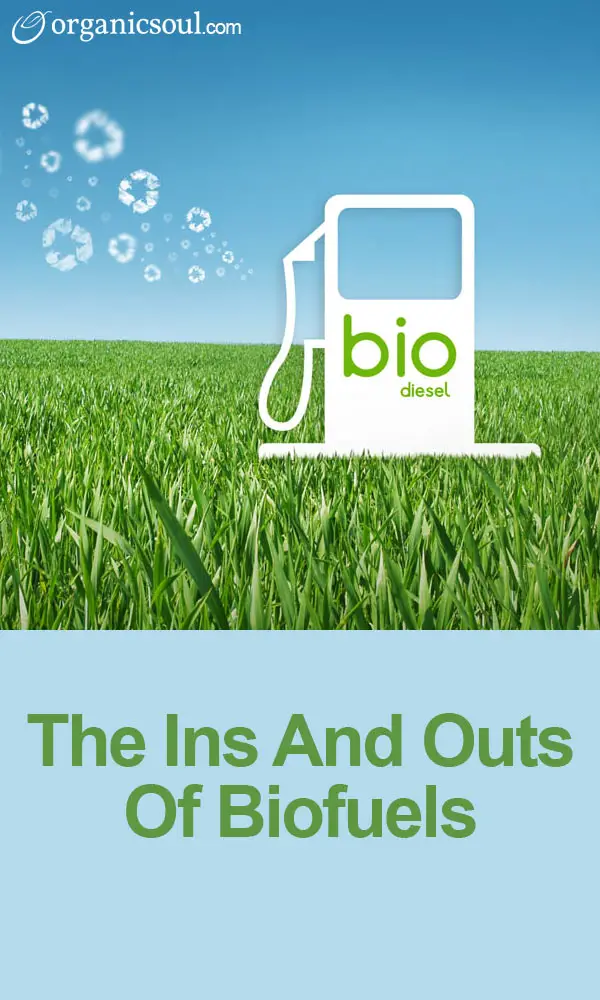
Different types of energy sources are everywhere, and for the past few weeks on Organic Soul, we have been identifying some of the potential major players in the energy game for the future. The pursuit to find new types of energy is all but over, and a source worth looking into before ending our journey is biofuels.
Like Organic Soul on Facebook
Broadly speaking, a biofuel is any bioorganic plant or animal material that can be used as a source of energy. In fact, biofuel can be created from any carbon source that is easy to replenish, i.e. plants. Biofuels can come in solid, liquid, or gas form – while you may think of ethanol when you hear biofuel, it would be just as correct to think of wood, perhaps the most popular biofuel for the last millennia.
Why Use Biofuel?
Biofuel has a number of advantages to its use. Among these are critical selling points for renewable and cleaner energy researchers.
1. Cost Efficiency
First, because of the structural similarity to gasoline, switching to biofuels doesn’t require radical change for the public. In addition, after the technology becomes better implemented and is widely available, biofuels should be significantly less expensive than traditional sources of energy such as oil, which will surely see massive rises in prices because of finite reserves.
2. Better than Alternatives
Although it remains true that biofuels are not carbon neutral (energy will be needed to grow plants and convert them into fuel), they are still friendlier to the environment than other energy sources. Biofuel, unlike petroleum fuel, has a diverse base of sources – crop waste, manure, and other byproducts to name a few. In this same vein, biofuels are renewable. The turn around process is much fast than that of oil.
3. Environmental Perks
Perhaps the main reason why biofuels are attractive is that they are kind on the environment. While biofuels still emit carbon, it is at a significantly lower level, meaning they help preserve atmospheric quality. They also include fewer toxins, which lends hand to their biodegradability. Any spills of biofuels would be far less damaging and far cheaper to clean up.
4. Social Benefits
Saving the best for last, there are a number of social benefits tied to biofuel use and production. First, it helps diminish the reliance on foreign oil. This means we can cut our dependence on other, heightening our stability and security. Because of this, some in government may find less of a need to go to war for resources, meaning more of our tax money goes to our country, and not to our war machine. The second benefit is economic in nature. Because biofuel would be a domestic industry, domestic jobs and infrastructure would be built around it. This means thousands of jobs, an increase in demand for domestic agriculture, and all around economic stimulation through tax incentives to buy new cars.
As we can see, biofuels certainly have some positive aspects to them. It’s very tempting to want to get off foreign oil and become pursuant of a cleaner, greener energy future. However, biofuels aren’t all good.
The Drawbacks to Bio
There are a number of drawbacks to biofuels, and, unfortunately, some of them cancel out some of the benefits. Other drawbacks are more extraneous, but they still serve as strong counterpoints to the use of biofuel.
1. Energy Demanding
Even though biofuel may burn cleaner, it still demands energy to be produced. For example, the initial change to biofuel would require tons of resources – natural and financial alike – to jump-start the industry. Additionally, with the increase in biofuel crops, there will be a parallel increase in need for water irrigation. This could stress local water sources and lead to bigger and badder problems than gasoline. Finally, according to some studies, the production/refinement of biofuel has some carbon intensive phases, meaning hefty carbon emissions.
2. Consumer Outreach
Another problem with biofuels is that they would not be applicable to the majority of cars on the road today. While many diesel engines could run on biofuel, other traditional engines could not, meaning the public would feel the transition firsthand. Coupled with this is the fact that energy per gallon is not proportional with biofuel and gasoline. This means that more biofuel will be needed to produce the same amount of energy. This also means consumers may feel that they a spending more for a weaker product, which negatively affects the image of biofuel.
3. Production Side Effects
Finally, biofuel comes with a few side effects when in use/production. First, there is a fear that with an increase in biofuels being derived from plants, the prices in many staple foods will rise. In other words, if we start using soybeans for fuel, the overall market worth of soybeans will skyrocket. This means higher prices at the grocery store because of the different fuel at the pump. Secondly, depending on the bioorganic source, biofuel production emits heavy smells that are usually considered undesirable in large communities. While the production sites can be isolation, this translates into more energy for transport.
Clearly, there are a number of setbacks for biofuel too. Many of the problems are consumer in nature, meaning that he public will truly have to face the tide of change. This will be a problem for business, and in effect, a problem for industry.
Conclusion
In reality though, there types of drawbacks can be expected. With any change in industry, there will be a need for an initial high investment. With any change in energy source, it is understandable to see a parallel need to securing that energy sources. The question remains as to which set of problems and costs we would like to settle with.
Sure, we could stay with oil – a heavy polluter and finite resource with an inevitable fate in war. Or, alternatively, we could move to biofuel – an energy source that will costs us lots of money upfront, a reorganization of affairs, and consumer and business coordination.
Without a doubt, biofuel is on the rise. The UK has certainly seen tremendous movement toward bioorganics, where they now require 5 percent of energy sources to come from biofuel. To be frank, it seems more a matter of when, not if, with biofuel. As oil reserves begin to dwindle, more and more governments will see the need to switch to biofuels. With that, a new industry will be born and the world, once again, we be defined by a new energy source.















